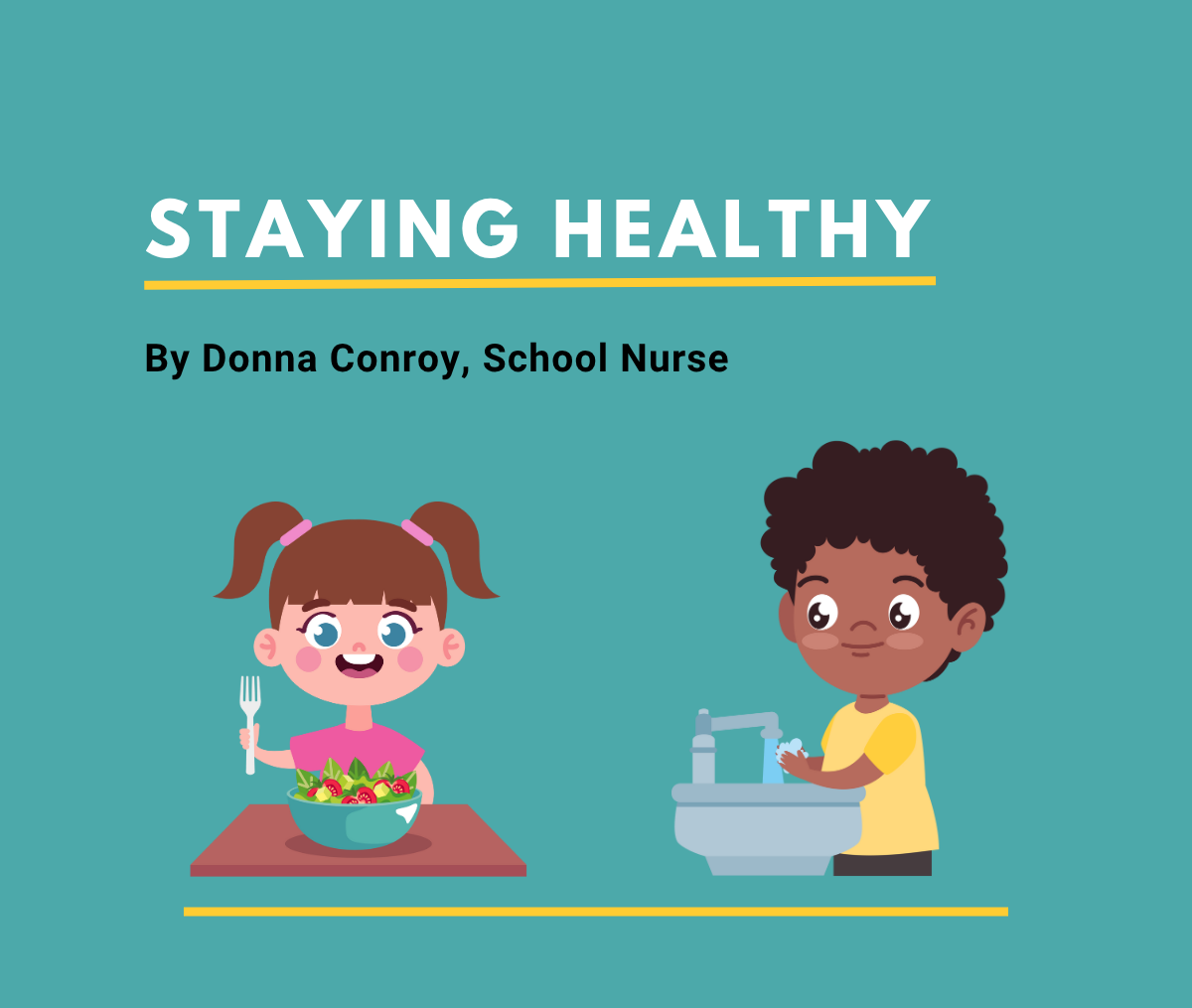

Staying Healthy
Source/Author: Donna Conroy, School Nurse
November 10, 2025
Flu and respiratory illness season is here, so practicing good health habits is more important than ever. It takes a community to keep us all safe. Help prevent the spread of illnesses (conjunctivitis, Covid, flu, RSV, strep, etc.) within our Shorecrest Community.
Steps we can all take to prevent the spread of germs and stay healthy:
- Practice good hand washing with soap & water for at least 20 seconds. (The amount of time it takes to sing the “Happy Birthday” song twice.) Wash hands often but ALWAYS after using the bathroom and before eating.
- If soap and water are not available use a hand sanitizer that is at least 60% alcohol.
- Practice good respiratory hygiene by covering your mouth & nose when coughing or sneezing into a tissue or shirt sleeve. (If a tissue is used, dispose of it immediately after use & wash your hands.)
- Avoid touching your mouth, nose and eyes.
- No sharing of water bottles, food or other personal items.
- Clean surfaces regularly. The top 5 most virus contaminated areas of our homes are telephones (When did you last clean your cell phone?), appliances, faucets, light switches, door handles and TV remotes.
- Get plenty of rest.
- Practice healthy eating habits.
- Keep well hydrated by drinking lots of water.
- Manage stress levels.
- Stay physically active.
- Receive vaccinations, if appropriate.
- If you get sick - stay home and away from others until your symptoms have improved and you have been fever free (100.4 or greater) for 24 hours without the use of fever reducing medication.
Four common respiratory illnesses and the signs and symptoms of each.
Common Cold:
- Typically develops slowly.
- Symptoms may include a runny or stuffy nose, sore throat, sneezing, congestion and a mild cough.
- Fever is uncommon but can occur in children.
Influenza (Flu):
- Symptoms typically begin about two days, but can range from one to four days, after flu viruses infect a person’s respiratory tract.
- Typically comes on quickly.
- May experience mild to severe illness.
- May include high fever, body aches, fatigue, headache, runny or stuffy nose and a dry cough.
- The flu can lead to more severe complications.
COVID-19:
- Symptoms can range from mild to severe and may appear 2-14 days after exposure.
- Common symptoms may include fever or chills, sore throat, cough, stuffy or runny nose, muscle/ body aches, shortness of breath, nausea, vomiting or diarrhea, and fatigue.
- A distinguishing symptom is loss of taste or smell.
- Symptoms can develop either gradually or suddenly.
- COVID-19 can lead to severe respiratory issues and has distinct long-term effects.
RSV (Respiratory Syncytial Virus):
- Usually experience mild like cold symptoms 4-6 days after being infected.
- RSV primarily affects young children and infants but can affect adults, especially the elderly.
- Symptoms are similar to a cold or flu but can include severe wheezing and difficulty breathing in children and older adults.
For more information about Shorecrest policies regarding when children should be kept home from school, please review the Shorecrest Family Handbook Sick Policy.
























